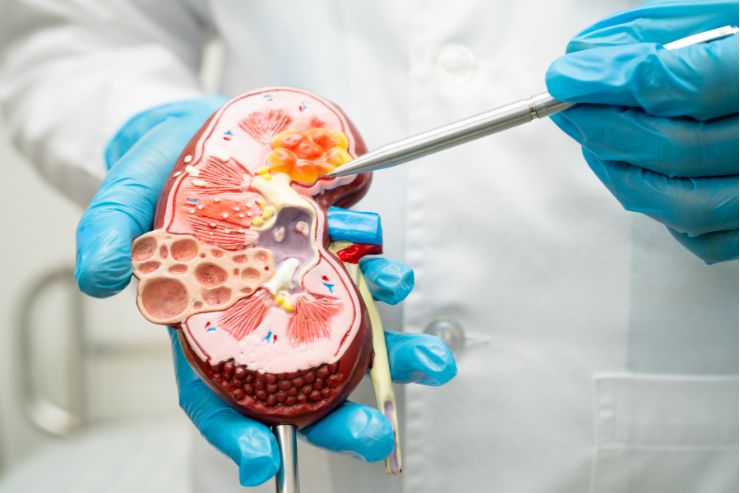
What is Diabetic Kidney Disease?
Diabetic Kidney Disease (also called Diabetic Nephropathy) happens when diabetes damages the kidneys over time. Your kidneys filter waste from your blood and help maintain healthy blood pressure. When diabetes isn’t well-managed, high blood sugar can harm these important filters, leading to kidney damage.
How Does It Happen?
High blood sugar from diabetes can weaken the blood vessels in your kidneys, making them work harder than they should. Over time, this causes scarring and reduces their ability to function properly. This damage can lead to protein loss in the urine, high blood pressure, and eventually kidney failure if left untreated.
Symptoms of Diabetic Kidney Disease
In the early stages, you may not notice any symptoms. As the condition progresses, you might experience:
Who’s at Risk?
Anyone with diabetes is at risk for kidney disease, but certain factors increase the chances, including: